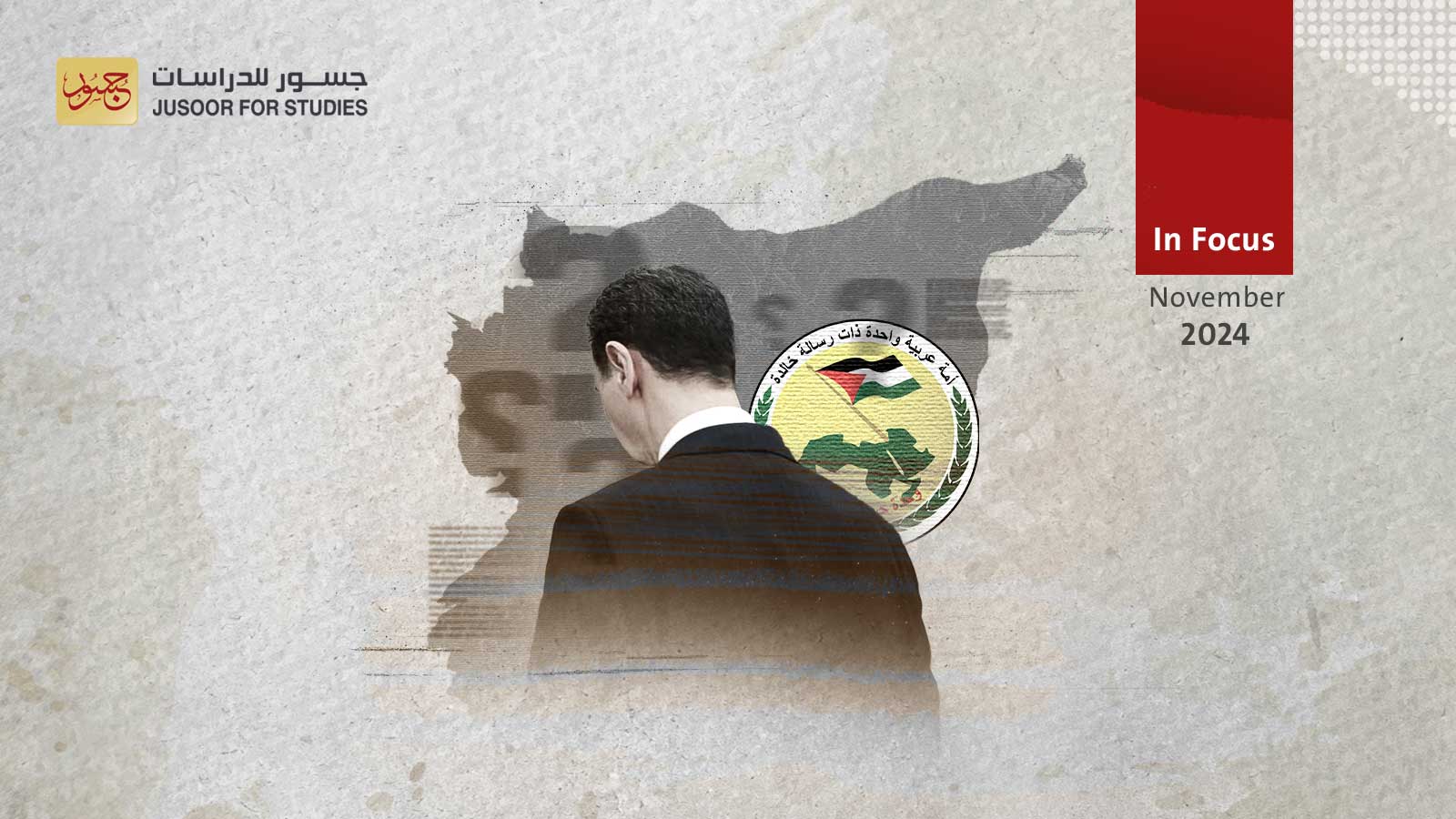Why Assad is Expanding the Baath Party’s Influence
Syrian President Bashar al-Assad is seeking to extend the clout of the Baath Party by restoring the party’s central leadership to the status it enjoyed prior to 2011. At the fourth session of the People’s Assembly in 2024, the party expanded its parliamentary bloc to a degree unprecedented since its establishment. It has also restructured its offices in order to oversee government and trade union activity through its Economic Bureau and the Office of Popular Unions.
In July, the party’s central leadership illegally dismissed the head of the Syndicate of Agricultural Engineers, Abdulkafi Khalaf, and appointed Ali Saadat to replace him. This violation was repeated on November 19 through Decision No. 265/30, naming Haydar Hikmat Fardawi as head of the General Syndicate of Syrian Lawyers, Osama Abu al-Fadhl as his deputy, and Rana Mohammad Awni al-Madani as secretary of the Central Syrian Bar Association, ahead of a meeting of the Bar Council that usually responsible for this task. The Council was thus later forced to announce that elections had taken place and been won by the party’s appointees.
The regime wants to restore the role of the Baath Party as its political arm, controlling political and trade union life, and to emphasize that the party has been—and will remain—the “leader of the state and society”, as per the country’s now-obsolete 1973 constitution. The party still holds a majority 169 in the People’s Assembly, and the central leadership attends trade union conferences which start with the chanting of Baathist slogans, as if these were party meetings.
The Baathist leadership’s recent decisions against the unions, and their enforcement, violate Syrian law and the 2012 constitution. The regime wants to send a message that while the constitution has been amended in form, its content remains effective, through Law 53 of 1979, which has never been repealed. This law ratifies Article 8 of the 1973 constitution, which enshrines the Baath Party’s “leadership of the state and society” and supervision over all Syria’s popular organizations, professional associations and societies. Article 4 and Article 34 of Law 30 (2010), on the organization of the legal profession, also require the Bar Association to coordinate with the party’s central leadership.
The regime usually manages union life through Baath Party directives to its members on these unions’ leadership councils, which are de facto affiliated with the party, as they mainly reach those councils via party lists. This was the case when the party leadership decided to punish 19 members, most of them union members, including the head of the artists’ union Ghazi Mohsen and the head of the engineers’ union Ghiath Qatini, for running for parliament without waiting for party approval. Both were sacked as heads of their respective councils.
On the latest occasion, the party intervened directly by appointing the head of the Bar Association and his deputies, in order to punish lawyers who had launched a campaign against regime decisions to propose a new draft law that includes a clear attack on the syndicate’s finances and the integration of State Council lawyers into it.
The Baath Party’s decisions to interfere in trade union life will pose a major challenge to jurists and those calling for the independence of trade unions and for adherence to the constitution and Syrian law. These decisions violate Article 10 of the 2012 constitution, which grants popular organizations and professional unions autonomy and an independent legal personality. The moves also violate laws that grant union councils and congresses the power to choose their heads and their deputies.
Finally, the Baath Party’s control over union life aims to weaken the unions and block any future attempt to activate their role or benefit from them in any political solution to the Syrian conflict. It also exerts control over its allies in the National Progressive Front, after it increased its share of seats in the People’s Assembly at the Front’s expense in elections since 2012. The regime’s efforts to consolidate the Baath Party’s influence appears to be aimed at achieving tighter control of these institutions, giving bargaining chips it can pay out in the future rather than sacrificing powers held by the presidency if international players move to impose a solution that involves activating political and trade union life and giving space to parties and civil society.








